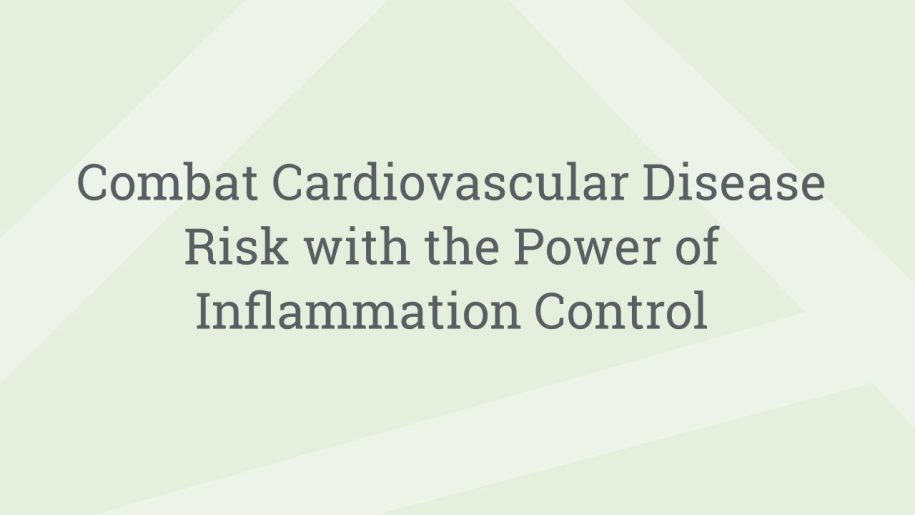Combat Cardiovascular Disease Risk with the Power of Inflammation Control
Table of Contents
Steps to a Healthier Lifestyle
There are several small steps you can take to reduce your risk of cardiovascular disease. One of the most important steps is to adopt a healthier lifestyle. This includes eating a balanced diet, engaging in regular physical activity, staying hydrated, and getting enough sleep.
Start with small changes
Making significant lifestyle changes can be difficult, but starting with small changes can make a big difference. For example, replace soda with water, or take the stairs instead of the elevator. Over time, small changes like these will compound and lead to significant improvements in your health.
Focus on whole foods
One of the most effective ways to combat cardiovascular disease is to focus on whole foods. This means eating foods that are minimally processed and high in fiber, vitamins, and minerals. Examples of whole foods include fruits, vegetables, whole grains, nuts, and seeds. Try to avoid foods that are high in saturated and trans fats, added sugars, and sodium.
Incorporate physical activity into your routine
Physical activity is essential for a healthy heart. It can help lower blood pressure, reduce inflammation, and promote weight loss. Try to incorporate at least 30 minutes of moderate-intensity exercise into your routine most days of the week. This can include activities like brisk walking, swimming, or biking.
Stay hydrated
Drinking enough water is essential for maintaining a healthy heart. Dehydration can cause blood to thicken, making it more difficult for the heart to pump. Aim to drink at least eight 8-ounce glasses of water each day, and more if you’re engaging in physical activity.
Prioritize sleep and stress management
Sleep and stress management are often overlooked when it comes to heart health, but they are just as important as diet and exercise. Chronic stress and lack of sleep can increase inflammation, which can lead to cardiovascular disease. Try to get at least seven hours of sleep each night and prioritize stress management activities, such as yoga or meditation.
Conclusion
Inflammation control is a powerful tool in the fight against cardiovascular disease. By adopting a healthier lifestyle, focusing on whole foods, incorporating physical activity, staying hydrated, and prioritizing sleep and stress management, you can significantly reduce your risk of cardiovascular disease. Start small, and remember that every healthy choice you make can lead to a stronger, healthier heart.
